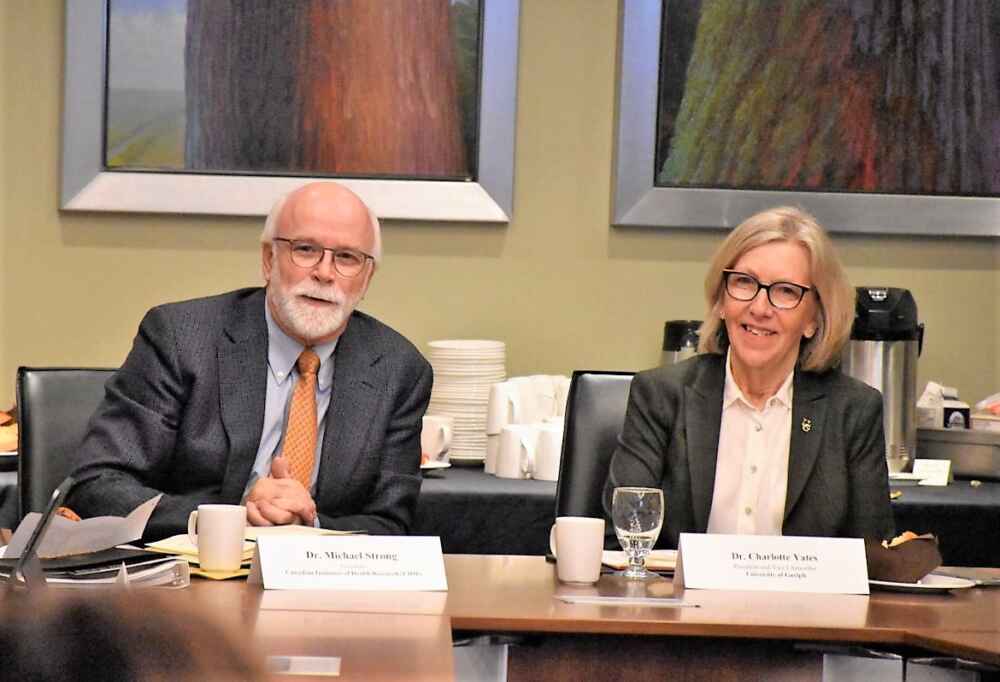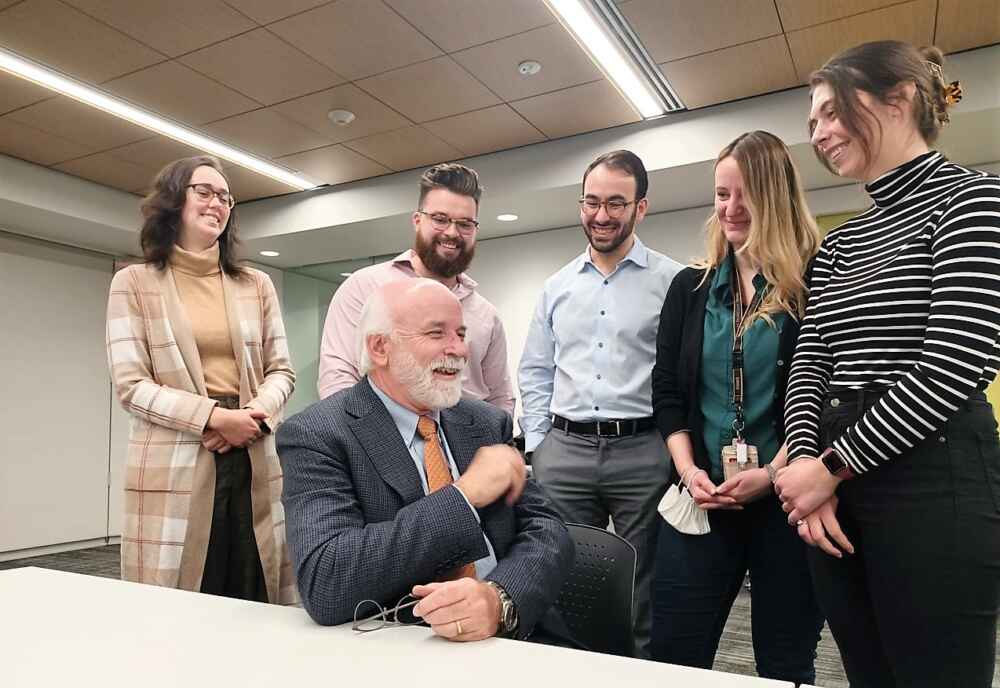
Showcasing the University of Guelph’s unique strengths in health research and teaching was the theme of a daylong visit to U of G on Jan. 12 by Dr. Michael Strong, president of the Canadian Institutes of Health Research (CIHR).
During his visit, Strong met with senior U of G executives and attended roundtable discussions on One Health, training of grad students and post-docs, and early career researchers.
Faculty members from various U of G colleges discussed diverse aspects of the University’s One Health expertise and strategic direction, embodied in its One Health Institute and a new undergraduate program in the field.
Long promoted by U of G experts, One Health aims to address complex problems at the intersection of animals, human and environmental health ranging from infectious disease pandemics to antimicrobial resistance.
“One of the University of Guelph’s emphases is on One Health – at the heart of our teaching and research missions for decades – which helps the University attract federal, industry and philanthropic health-related funding,” said Dr. Malcolm Campbell, vice-president (research).
“We look forward to strengthening our relationship with CIHR to catalyze discoveries that benefit the health of Canadians and, together, to advance One Health approaches to critical health challenges such as antimicrobial resistance, zoonotic diseases and water contamination.”
Grad students discussed importance of CIHR funding for research

During a U of G town hall, Strong discussed financing of federal research programs, effects of the COVID-19 pandemic on CIHR funding, and initiatives to increase support for equity, diversity and inclusion in research funding and programs.
Also visiting were the CIHR’s Catherine MacLeod, executive vice-president, and Christian Baron, vice-president (research).
In a roundtable moderated by Dr. Ben Bradshaw, assistant vice-president (graduate studies), all three CIHR executives learned about agency-funded research by U of G grad students and a post-doc from the Department of Molecular and Cellular Biology and the Department of Human Health and Nutritional Sciences (both within the College of Biological Science); and the Department of Biomedical Sciences in the Ontario Veterinary College (OVC).
Alex Kuzma-Hunt, a biomedical sciences master’s student, said CIHR funding has been crucial for his studies of the effects of cannabis on male fertility. His collaborative lab studies in OVC involve use of instruments and techniques for in vitro fertilization and other painstaking procedures.
“I wouldn’t be able to do this research without CIHR funding,” said Kuzma-Hunt. “I would be worried about finding other external sources of funding.”
Visit featured OVC tour, discussion of early career researchers
The delegates toured OVC led by Dr. Shayan Sharif, one of two professors in the Department of Pathobiology elected last year to the Canadian Academy of Health Sciences; and Ilya Bogorad, OVC’s executive director, strategy and planning.
The roundtable with early career researchers was led by Dr. Jess Haines, CIHR University delegate at U of G and a faculty member in the Department of Family Relations and Applied Nutrition within the College of Social and Applied Human Sciences. Haines is associate director of the Guelph Family Health Study, which aims to identify early disease risk factors and test strategies to promote healthful behaviours early in life.
Strong was appointed CIHR president in 2018. He also serves as vice-chair of the Canada Research Coordinating Committee, which advances federal research priorities and the coordination of policies and programs of Canada’s research funding agencies and the CFI.
An expert in the cellular biology of amyotrophic lateral sclerosis, Strong previously served as dean of the Schulich School of Medicine and Dentistry and a Distinguished University Professor at Western University.
Contact:
Kimberly Moser
kmoser@uoguelph.ca
